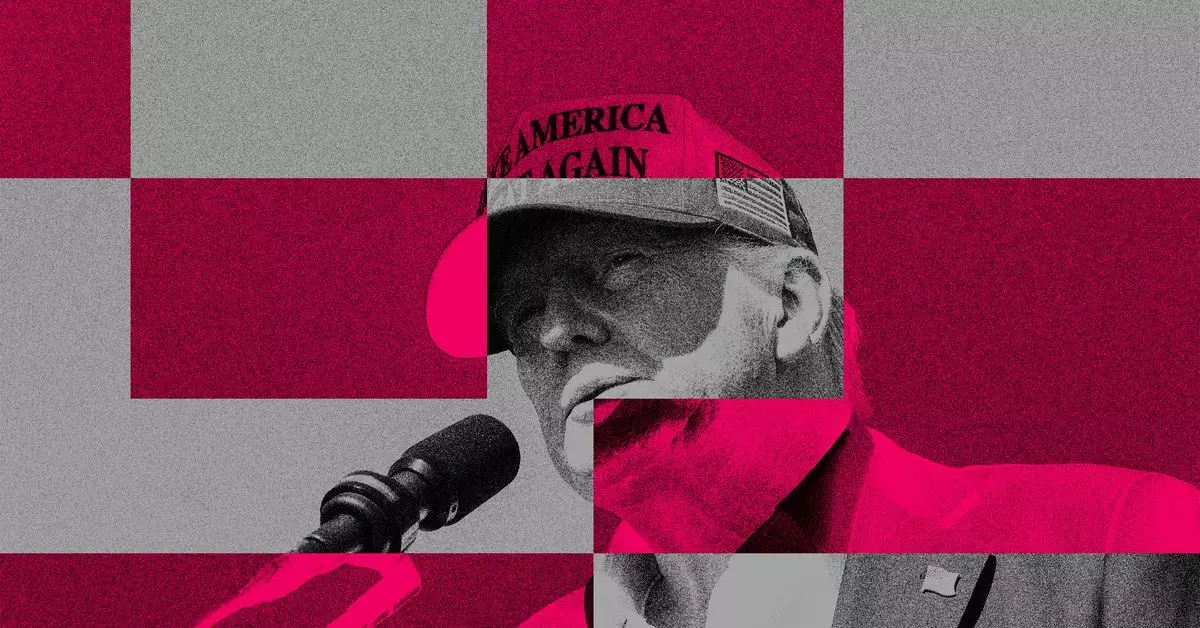On a notable Tuesday evening, former President Donald Trump extended a presidential pardon to Ross Ulbricht, the notorious figure behind the Silk Road, a clandestine marketplace that thrived on the dark web. Under the alias “Dread Pirate Roberts,” Ulbricht was convicted and sentenced to life imprisonment in 2015 for various crimes, including narcotics distribution. As the marketplace gained notoriety, it became one of the first major platforms to utilize Bitcoin for illegal transactions, facilitating the trade of not just drugs, but also forged documents and other illicit goods. Ulbricht’s case poses serious questions about the intersection of law, technology, and morality, throwing into stark relief the complexities involved in punishing cyber crimes.
The Public Perception of Justice
Ulbricht’s pardon ignites fierce discourse among supporters and critics alike. Proponents of Ulbricht, particularly those embedded within the cryptocurrency community and certain segments of the right-wing, argue that his life sentence is a gross overreach of judicial power. They point to harsher penalties for similar offenses, suggesting a disparity in how the law is applied based on the visibility and reputation of those involved. For example, Blake Benthall, who managed Silk Road 2.0, received a far more lenient sentence of time served and probation. Those advocating for Ulbricht’s release argue that he represents a political prisoner in a system that punishes innovation and entrepreneurship, even when it occurs in the shadows of the internet.
The context of Ulbricht’s sentencing is equally pivotal in evaluating the fairness of his punishment. Although the crimes committed under his watch were nonviolent in nature, the impact of drug-related deaths allegedly tied to transactions made on Silk Road weighed heavily on the judge’s decision. The trial revealed an unprecedented depth of digital evidence, as law enforcement apprehended Ulbricht with his laptop open, providing them a gateway to his encrypted communications, coding archives, and personal reflections stored in a digital diary. Any reasonable examination of this evidence raises further ethical questions: to what extent do personal actions and intentions align with legal accountability in the rapidly evolving landscape of cyber law?
The pardon poses significant implications not only for Ulbricht but for the legal framework governing digital commerce and crime. If the precedent set by the pardoning of Ulbricht signals a potential shift in how the judicial system may treat cybercrimes, it invites speculation on future cases and the treatment of digital entrepreneurship. In an age where virtual marketplaces are blossoming, one must consider if this decision opens the floodgates for leniency toward innovators who step outside traditional legal boundaries.
Ulbricht’s saga is no mere tale of crime and punishment; it is a reflection of the challenge society faces in navigating the digital age, demanding a reexamination of existing legal systems to ensure that justice is both fair and relevant. As the narrative surrounding Ulbricht continues to unfold, it illuminates the growing pains of a world that grapples with the realities of its own digital creations, making it a pivotal moment in legal history.

